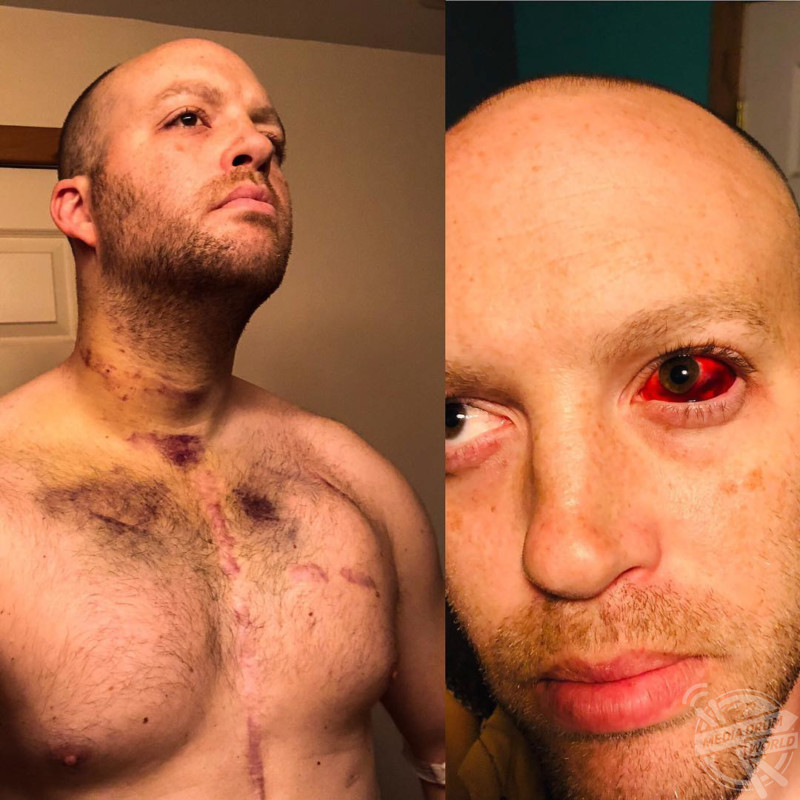
Learn more about how blood thinners can help after your knee or hip replacement surgery. Blood clot formation, also known as coagulation, is your body’s normal response in certain situations.

Wear compression stockings during the day.
Blood thinners after hip surgery. Blood thinners can prevent clotting and stave off growth of existing clots, but they are not without risks. Wear compression stockings during the day. Take them off at night.
Blood thinners are recommended in most cases, unless these is active bleeding or a very high risk of bleeding. Some surgeries require you to donate blood before surgery. So, when we look at prevention, we look to blood thinners/anticoagulants.
Blood thinners after knee or hip replacement surgery. These clots cause between 1,000 and 5,000 deaths each year. Anticoagulants after hip replacement surgery.
Blood clots after surgery can cause serious problems. It is normal to lose blood during and after hip or knee replacement surgery. Blood thinning medications (anticoagulants) often are given to patients just before or after a total joint replacement to reduce the risk of blood clots following surgery.
Be sure you get instructions about how to take your medicine safely. Your doctor may prescribe warfarin instead of heparin or low molecular weight heparin for blood clot prevention. This study aims to explore the optimal surgical timing of hip fracture patients only taking doacs, with transfusion, morbidity and mortality as key short term outcomes associated with potential increased perioperative blood loss.
Learn more about how blood thinners can help after your knee or hip replacement surgery. Bleeding is the primary risk associated with blood thinners. It can make your bruise go away more easily.
Residents 18 years of age or older. See full product & safety info, including boxed warnings. To help reduce the risk of blood clots after your surgery, your healthcare professional may prescribe a blood thinner like xarelto ®.
You may also need to take blood thinners for 2 to 4 weeks to lower your risk for blood clots. But blood thinners can also raise the chance of serious or uncontrolled bleeding. “traditionally, warfarin/coumadin was used for prevention of dvt, etc.
There was no significant difference between the two in terms of preventing blood clots. Standard heparin and low molecular weight heparin are given by an injection under the skin. Following hip replacement surgery, anticoagulation medication should be given for at least 10 to 14 days.
Blood thinners can also be prescribed after some surgeries, such as hip or knee replacement surgery. Blood thinners after knee or hip replacement surgery | xarelto® (rivaroxaban). You and your doctor will need to discuss which medicines or devices might be best to prevent blood clots after hip or knee replacement surgery or surgery for a broken hip.
We hypothesise that surgical timing will not a ect these. It is important to get blood thinners started as soon as it is safe to do so. Some people need a blood transfusion during surgery or during their recovery period in the hospital.
You are less likely to need a transfusion if your red blood count is high enough before surgery. The subacute nature of hip fracture surgery [18,19]. “this is a potential complication of that surgery.
These will help prevent blood clots from forming. If a shot is necessary, your doctor will tell you how to do this. To reduce the risk of dvt blood clots after hip or knee replacement surgery.
After a hip or knee replacement surgery, your doctor will prescribe a blood thinner to lower your risk for clots. Take all your medicines the way your provider told you to. Do your daily joint exercises.
In another study, a group of 3,424 knee and hip replacement patients were given rivaroxaban for five days. For most people, the risk of getting a blood clot after surgery is higher than the risk of bleeding. You can also take these steps:
This medicine could be in pill form or as a shot (injection). May 24, 2017 — blood thinners, such as aspirin, reduce the risk of thrombus formation but also interfere with the initial clot formation that is. A small number of patients develop blood clots in their lungs or legs.
Managing anticoagulants before, during, and after medical procedures. As always, nature provides us with some answers. Blood thinners can cause serious bleeding problems.
To reduce the risk of dvt blood clots after hip or knee replacement surgery. You may be able to give yourself the injections, or have a visiting nurse administer them. Medicines can help prevent blood clots, but they can also slightly increase your risk for bleeding.
“there is a higher incidence of blood clots/deep venous thrombophlebitis (dvt)/pulmonary emboli, following total joint replacement. This site is intended for u.s. Chances are your doctor will prescribe a blood thinner (or anticoagulant) to help prevent them.
After that, some remained on the blood thinner, while others switched to aspirin. Enoxaparin injections, warfarin (coumadin), direct oral anticoagulants like xarelto. Blood thinners help prevent blood clots in the lungs after surgery.
Medicines called blood thinners can lower a person’s risk of forming a blood clot after surgery. Blood clot formation, also known as coagulation, is your body’s normal response in certain situations. While these medications do not actually “thin” the blood, they do slow the body’s ability to form dangerous blood clots, such as blood clots in the arms or legs.
Xarelto® helps prevent blood clots after knee or hip replacement surgery You may be asked to wear special compression stockings on your legs for about 6 weeks.